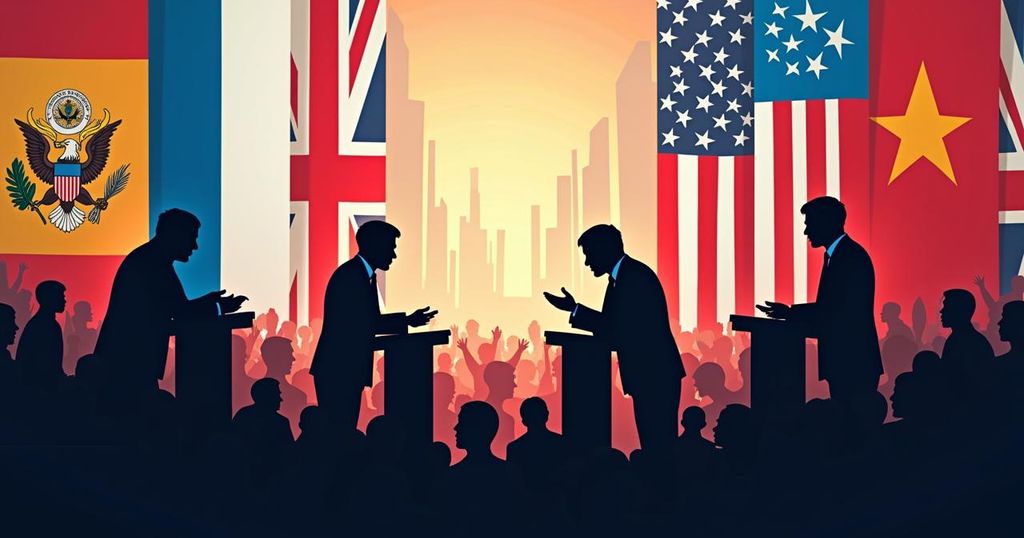Vance-Walz Debate Highlights Foreign Policy Concerns Amid U.S. Election

In their recent debate in New York, J.D. Vance and Tim Walz discussed both domestic and foreign policy issues, with polls showing Vance won by a slim margin. Walz referenced his experience in China and criticized Trump’s approach, advocating for better understanding of international relations.
In a recent debate held in New York, Republican Senator J.D. Vance and Democrat Minnesota Governor Tim Walz engaged in a head-to-head discussion that primarily revolved around domestic issues such as gun control, immigration policies, and economic concerns. However, the debate also touched upon foreign policy, including the contentious issues regarding China and the Middle East. A nationwide CBS News poll indicated that Vance narrowly secured victory in the debate, with 42 percent of respondents favoring him, compared to 41 percent for Walz and 17 percent considering it a tie. Governor Walz highlighted his previous experience in China, noting that his understanding of international relations would have been enhanced had former President Donald Trump accompanied him on educational trips to the country. He asserted, “I would make the case that Donald Trump should have come on one of those trips with us. I guarantee you he wouldn’t be praising Xi Jinping about Covid, and I guarantee you he wouldn’t start a trade war that he ends up losing.” This remark underscores the scrutiny Walz faces regarding his connections to China, particularly following the announcement of Kamala Harris as his running mate for the elections.
The backdrop of this debate centers on the evolving political landscape of the United States ahead of the elections, with a particular emphasis on how foreign policy can impact domestic voter sentiments. With rising concerns regarding China’s global influence, candidates are increasingly scrutinized based on their past engagements and perceived stances on international affairs. The debate served not only as a platform for discussing issues directly affecting American citizens but also as a battleground for highlighting candidates’ approaches to foreign relations, an area of heightened interest among the electorate.
In conclusion, the Vance-Walz debate illuminated critical tensions surrounding domestic and foreign policy relations, particularly focusing on the candidates’ differing experiences and perspectives on issues influencing the U.S.-China relationship. While Senator Vance seems to have slightly edged out Governor Walz according to polls, Walz’s emphasis on his background and knowledge regarding China raises pertinent questions about international engagement and its implications for domestic policy and electoral support moving forward.
Original Source: www.scmp.com






